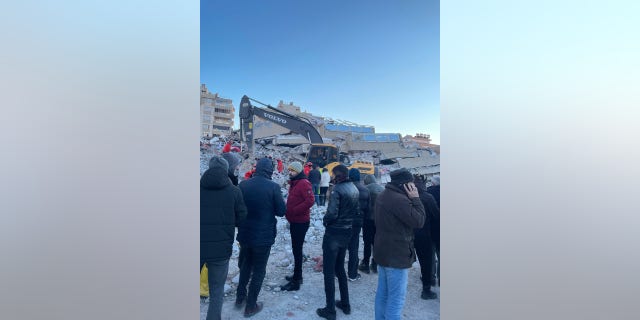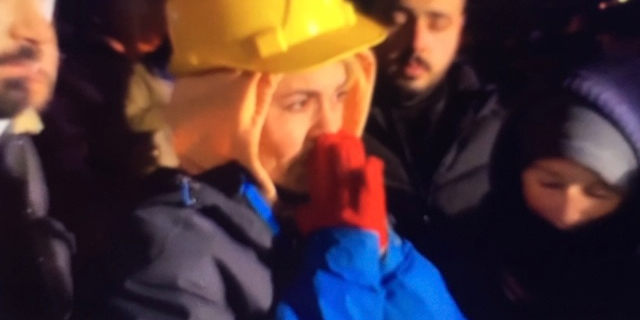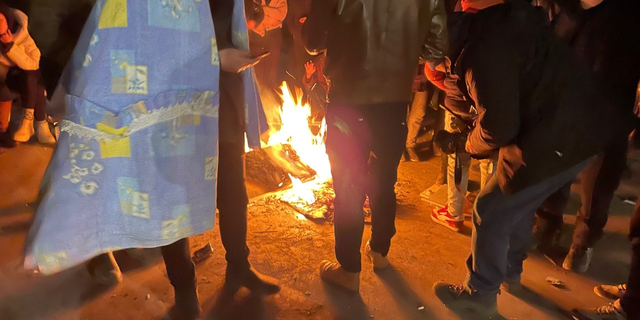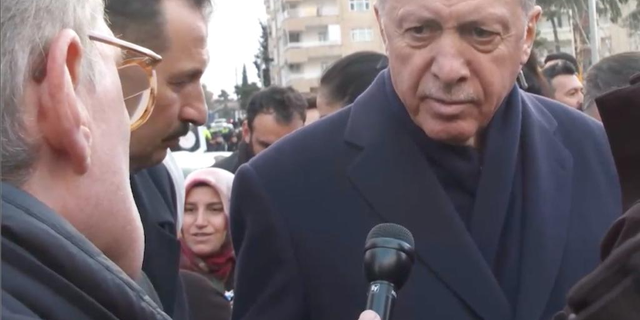ISKENDERUN, Turkey — It hung in the air on the streets of the Turkish city of Iskenderun on Monday. The smell of death. A week after two earthquakes rocked the region, dramatic relief efforts were becoming rare and replaced instead by a grim recovery of bodies crushed under the rubble of the earthquake’s horrific force. The hard-hit city was teeming with emergency crews busy working heavy construction machinery on many construction sites.
The ritual is chilling. At one point where we were, the digging machine would have been at work and a body would have been found. The call goes out for the family to identify him. Howls of horror and pain follow. The victim carried away in a body bag to be placed in a wooden coffin and taken away in a van from the morgue. We have seen this happen several times.
The aftermath of the massive earthquakes has taken several turns since we arrived in Turkey last week. Our first stop on Tuesday was Kahramanmaras, the closest city to the epicenter of the first major earthquake. After a seemingly calm drive through its mostly untouched suburb, the full force of the natural disaster became apparent with building after building folded in on themselves

Kahramanmaras is the closest Turkish city to the epicenter of the first major earthquake. Around 35,000 deaths have been reported so far from the earthquakes that hit Turkey and Syria. (Greg Palkot/Fox News)
TURKEY-SYRIA EARTHQUAKE DEATH TOTAL PROBABLY EXCEEDS 56,000, UN EMERGENCY AID HEAD SAYS
Our live location that night was near a gas station; a beacon of life for freshly bruised victims, who lined up for gas for their home generators with the city’s electricity gone, getting a charge for their phones from station electricity and a quick warm-up.
In the aftermath of the disaster, the region was hit by wind-whipped snow and freezing temperatures. The villagers huddled around the fires to keep warm.
The next day we were in Gazientep, the largest city close to the earthquake. Usually bustling, this day was eerily quiet. Some buildings had been torn down. Most had been damaged. Forcing almost all residents to stay out of their homes and keep shops and businesses closed.

A mother witnesses her son being rescued from the rubble in Gazientep. (Greg Palkot/Fox News)
The search for survivors at the site we covered was particularly poignant. Waiting outside among the many was the mother of a 17-year-old boy trapped in the rubble. She had made it out alive. She talked to us and prayed for him to survive. Two days later, her prayers were answered. Rescuers brought him out looking and sounding in great shape. Her mother swore he would never let him leave her.
TURKEY-SYRIA EARTHQUAKE: 5 FAMILY MEMBERS EXTRACTED FROM RUBBLE AFTER 129 HOURS, WHILE THE DEATH TOTAL EXCEEDS 25K

Gazientep, the largest city closest to the earthquake. (Greg Palkot/Fox News)
We went to the mountain town of Adiyaman on Thursday. Firefighters search and rescue teams from Fairfax, Virginia and Los Angeles had been brought in by USAID to help out. It was badly needed. The place was probably the worst serviced by a struggling Turkish government we had seen. Everyone jumped into action trying to find someone alive as they slipped over uneven stones, hauled away rubble with their bare hands, prayed and cheered at every sign of life.
We were actually thrust into the mission, giving a team from Los Angeles, all their gear, and a sniffer dog, Diva, a ride in our 18-seat van. After a three-hour tortuous drive through streets that looked like post-war Berlin, we came to a collapsed structure. Another team thought there was life there. A circular saw was used to cut out a passage in the concrete. Camera and sensors have been inserted. But after a few sniffs, sadly, Diva the dog quickly decided it was hopeless.
As recovery efforts continued, the humanitarian crisis escalated. On Saturday, we went to a tent city set up by the Turkish military to accommodate the earthquake homeless in Sanliurfa city along with those who are just afraid to stay in their damaged homes amidst all the aftershocks. We spoke to a 17 year old girl who explained in perfect English that she was sleeping in her family’s apartment on the 6th floor of a building when the earthquake hit. The apartment fell two floors trapping her and her family inside. She was lucky. She was rescued six hours later along with the rest of her family. With just a scratch. Tonight she had a smile for us.
US, UN EARTHQUAKE AID SLOW TO ENTER SYRIA, AS COMPARED BARRIERS TO ENTRY COMPOSE CRISIS
Turkish President Recep Tayyip Erdogan was visiting that day. We told him what the critics had said, that his government had not prepared enough and was not doing enough to help the earthquake victims. He replied harshly through his translator: “Of course there are dead, it’s an earthquake”. We asked him if his government could do more than he did, to which he replied, “We’re trying to fix the problems.” After, he left with his entourage of him.
One problem that surfaced on Sunday was that perhaps at least some of this carnage could have been avoided if contractors had followed earthquake zoning rules. Over 100 builders have been named by Turkish government officials as suspects. We were at a site in Adana, a large city on the west side of the earthquake zone, where a 14-story apartment building had completely collapsed while other buildings were still standing. Relatives of those killed stared at the debris, looking at material that didn’t appear to be up to scratch, including a man whose brother and family were killed. “I’m angry,” he told us, “but it doesn’t matter. They’re dead.”

President Recep Tayyip Erdogan is facing criticism for his government’s lack of earthquake preparedness. (Greg Palkot/New Fox)
Which brings us to Iskenderun and today’s scene of death and destruction. As the natural disaster turned into a humanitarian catastrophe. We visited an emergency clinic that had been set up opposite the city’s main hospital, which was too damaged by the earthquakes to accommodate patients. After the first wave of direct injuries from earthquakes, such as broken arms and legs, they were now facing a new wave of damage. Aftershock injuries. Near suffocation from inhalation of dust and sand. “It’s bad,” one patient told us, “but we’re strong.”
That clinic was reinforced by a large presence of Indian aid, doctors and security. Part of the global outpouring of aid that is helping Turkey cope. But sadly, just across a nearby border in earthquake-stricken northern Syria, the landscape is in ruins. An international community that the war-torn country has kept at a distance, providing little in the way of help, to the people there in need.
CLICK HERE TO GET THE FOX NEWS APP
I have covered many natural disasters around the world for Fox News. This is one of the worst. My personal takeaways? First, how brave, thoughtful and kind the Turks are, to each other, even to us strangers, as they faced the devastation. Secondly, how a serious examination of what Ankara has or has not done that has contributed to these horrors is needed. Finally, no matter how sophisticated and technologically in control we think we are, the forces around us, our natural world, will always have the final say.
Pray for the people of Turkey and Syria.
